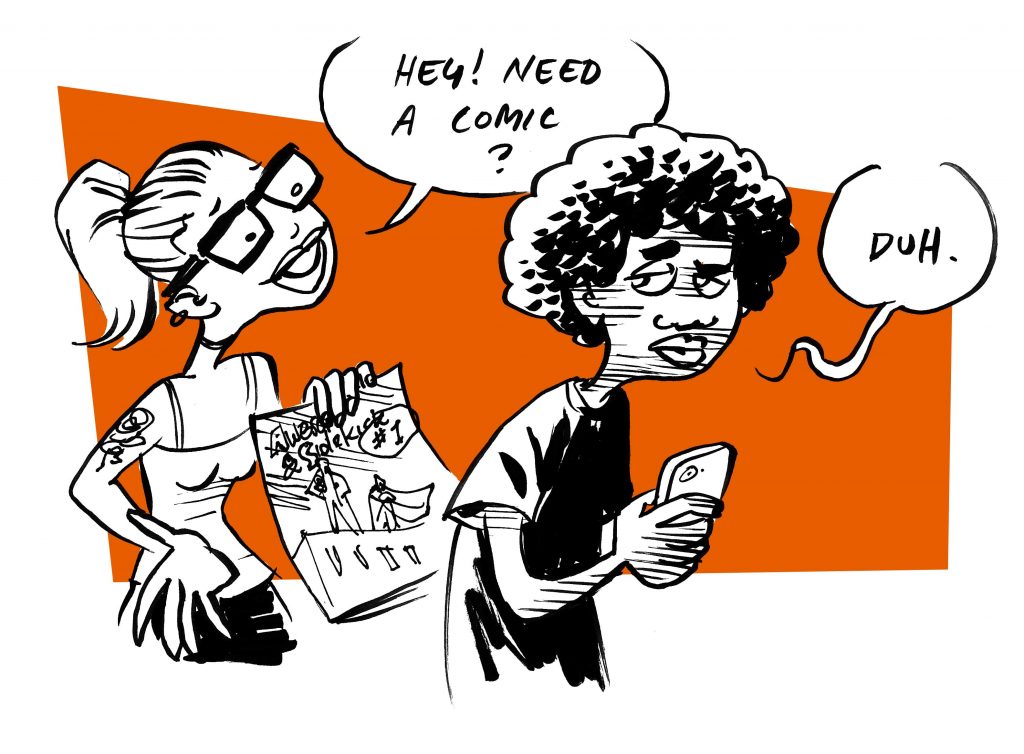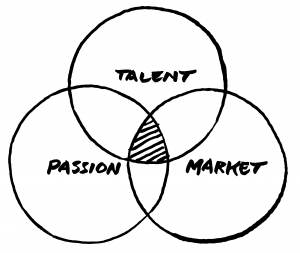 I recognize the need for an artist to be more mindful of the business aspect. But I’m feeling a lot of resistance to the whole product/market lingo and finding it hard to implement in my own life.
I recognize the need for an artist to be more mindful of the business aspect. But I’m feeling a lot of resistance to the whole product/market lingo and finding it hard to implement in my own life.
If people want to sell you something, you’ll notice that they all more or less follow the same model of proposition.
First they describe a problem that – maybe – you have. If it’s targeted marketing and not just the random (and annoying) TV or radio commercials, they’ll often get it right.
Then they will tell you who they are and their unique value proposition (USP), what they offer. And ultimately how they solve your problem.
Here’s an example: “Tired of spotty wifi? We here at TeleWhatever have 50 years of experience and a unique global network. We know how annoying it is to not have wifi. That’s why we offer 24-hour wifi for only 9.99 a month, that includes blah blah blah. Make sure you never miss out on an important cat video and sign up today with 25% off!”
This model is used almost everywhere. It is especially gag-inducing when used in selling medicine or insurance, where first they mention all the ways you could die horribly or lose all your stuff in a fire. That would suck, right? Luckily they happen to have a product that will save you from all this disease and disaster. Phew! A plan that most likely ensures their survival rather than yours, but that’s another discussion.
What I want you to take away from this, is this model for selling anything: Problem -> unique offer -> solution.
Whoops, did I say “anything?”
If you are reading this, you are either an artist or an aspiring artist. I’m taking a wild guess that you would eventually like to make money on this and not just have it as a hobby.
And here’s the problem:
Art doesn’t solve any problems.
No. Really. It doesn’t.
As Oscar Wild put it: “All art is quite useless”.
In other words, the sales tactics you can find online or read in books are invalid. You can’t use the above model to sell art.
You can’t focus group art either. Knowing what your customer wants makes total sense in the business world. In the art world I believe the opposite is true. Thinking too much about the wants or needs of the end user derails the artistic process and/or makes for boring art.
 I’ve created this little Venn diagram (very marketing biz, right?) to illustrate the three overlapping elements of a creative career. Without the product (your art), nothing to sell. Without the audience, no one to sell to (And I’ve added the passion element, because it’s darn hard to produce art that you’re not passionate about).
I’ve created this little Venn diagram (very marketing biz, right?) to illustrate the three overlapping elements of a creative career. Without the product (your art), nothing to sell. Without the audience, no one to sell to (And I’ve added the passion element, because it’s darn hard to produce art that you’re not passionate about).
This post reminds me of one of your podcasts where you talk about how some super talented artists fly under the radar while there are some creators who make a fortune by tapping into a zeitgeist, despite making art that is frankly not very good. It is all too tempting as an aspiring comics creator to sign up for the latest and greatest app or website to get your comics out there, maybe strike it rich, but you are exactly right, the model of marketing you describe doesn’t work for Art in general and comics in particular. And I can’t agree more that engaging with your current audience (as well as your prospective audience) is the best way to determine where to showcase your work.
Thanks for your insightful comment! I can’t remember the exact podcast episode but I see it all the time. I do also see a lot of good or great artists spending their time com plaining about the success of “lesser” talented people and that’s a gigantic waste of resources. Better to look at what these succesful people are doing to promote themselves and think if there’s something to learn and/or copy. Or come to terms with your small, eclectic audience and be grateful for it.